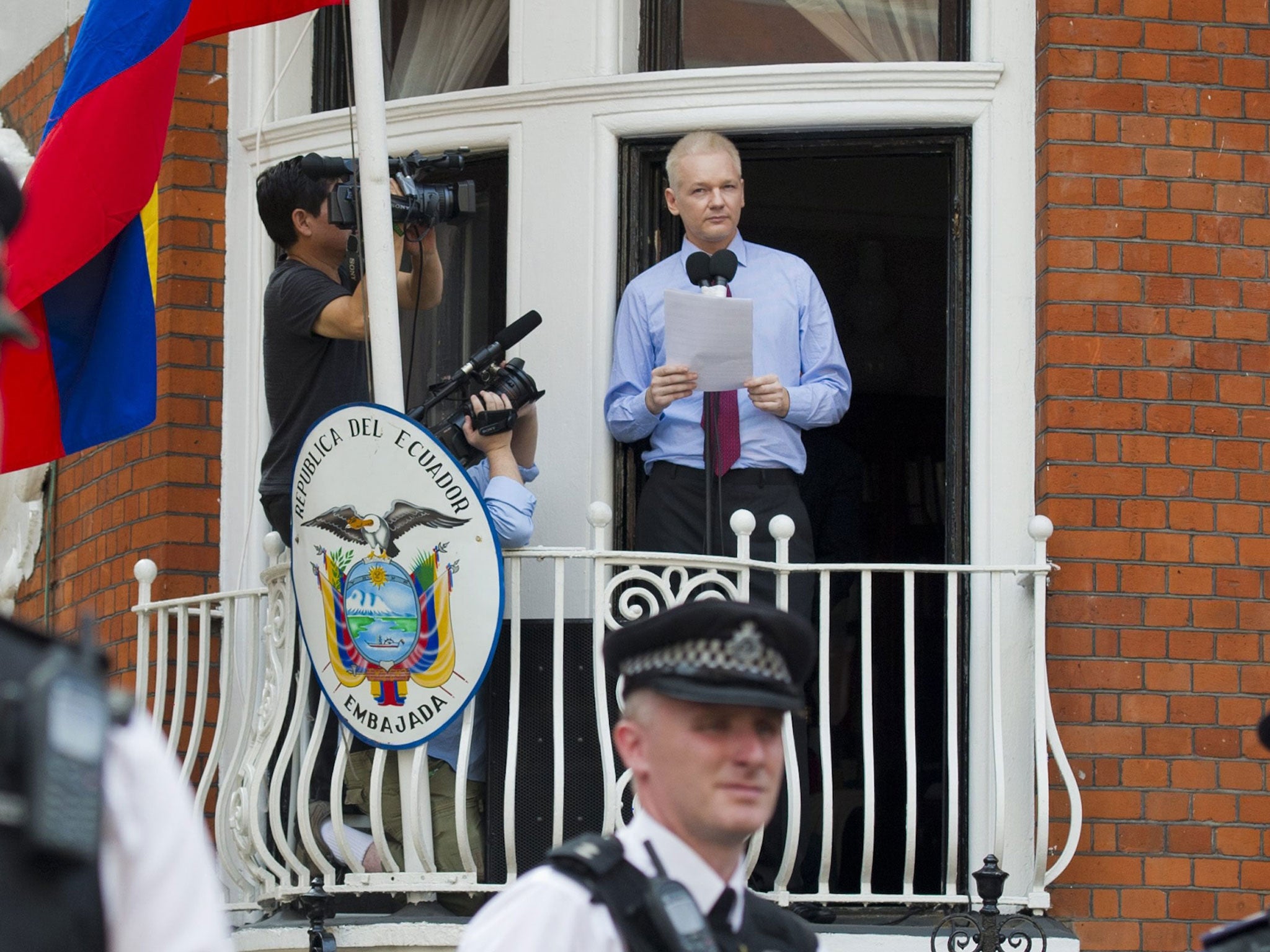Julian Assange: Swedish authorities ask to question Wikileaks founder in London
Officials performed the U-turn today after years of refusing Mr Assange’s offer to be interviewed in the UK in an attempt to break the deadlock in the rape case

Your support helps us to tell the story
From reproductive rights to climate change to Big Tech, The Independent is on the ground when the story is developing. Whether it's investigating the financials of Elon Musk's pro-Trump PAC or producing our latest documentary, 'The A Word', which shines a light on the American women fighting for reproductive rights, we know how important it is to parse out the facts from the messaging.
At such a critical moment in US history, we need reporters on the ground. Your donation allows us to keep sending journalists to speak to both sides of the story.
The Independent is trusted by Americans across the entire political spectrum. And unlike many other quality news outlets, we choose not to lock Americans out of our reporting and analysis with paywalls. We believe quality journalism should be available to everyone, paid for by those who can afford it.
Your support makes all the difference.Swedish prosecutors have asked to question WikiLeaks founder Julian Assange at the Ecuadorian embassy where he has been living for nearly three years about rape and sexual assault allegations by two women.
Officials performed the U-turn today after years of refusing Mr Assange’s offer to be interviewed in the UK in an attempt to break the deadlock in the case - most of the potential charges against the activist would expire under the statute of limitations in August, although they have until 2020 to investigate the most serious allegation of rape. The prosecutors also want to take a DNA sample.
The 43-year-old Australian, who denies all the charges, has been wanted in Sweden since the allegations were made against him in August 2010. He faces allegations of unlawful coercion, two counts of sexual molestation, and one count of lesser-degree rape alleged to have been committed against two women during a visit to Sweden that month.
Mr Assange arrived at the embassy in June 2012 and was granted political asylum fearing extradition to the United States on espionage charges relating to secret documents published by WikiLeaks.
Per Samuelson, Mr Assange’s lawyer, said the activist welcomed the Swedish prosecutors’ decision but was irritated it had taken so long. He said there would be formalities to sort out before any interview could be held, which might take “some time” to complete.
“This is what we have been asking for. We are happy and we see it as evidence that we were right all the time, and the prosecutor was in the wrong,” Mr Samuelson said. “I am convinced the prosecutor has been ordered to reopen the investigation. I have spoken to Julian and he welcomes this because he wants to clear his name. But he is also irritated because he believes this should have been done earlier.”
Following Mr Assange’s arrival at the embassy Scotland Yard officers were stationed outside the building waiting to arrest him if he tried to leave. The Met operation reportedly cost more than £6.5m – or £9,000 a day – in the first two years.
Mr Assange said his health has deteriorated in the confines of the embassy though a number of supporters paid visits, including Lady Gaga, and he hosted a talk show on Russia Today for four months and even appeared on The Simpsons in February last year.
Kristinn Hrafnsson, WikiLeaks’s official representative, said he was surprised by Friday’s developments claiming the Swedish prosecutor had “done nothing” to move the case forward for years.
He said: “I assume this is because it is extremely likely that Julian will win a case in the Supreme Court in Sweden, determining that the arrest warrant be dropped. The court has recently announced it will hear the case, and it is quite obvious it will rule in Julian's favour.”
Swedish lead prosecutor Marianne Ny said: “My view has always been that to perform an interview with him at the Ecuadorian embassy in London would lower the quality of the interview, and that he would need to be present in Sweden in any case should there be a trial in the future.
“Now that time is of the essence, I have viewed it therefore necessary to accept such deficiencies in the investigation and likewise take the risk that the interview does not move the case forward.”
A Foreign Office spokesman said: “As we have made clear previously, we stand ready to assist the Swedish prosecutor, as required.”
Join our commenting forum
Join thought-provoking conversations, follow other Independent readers and see their replies
Comments